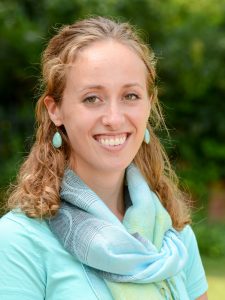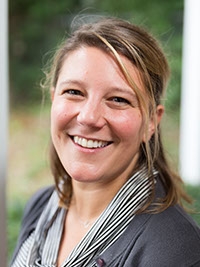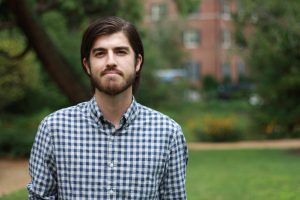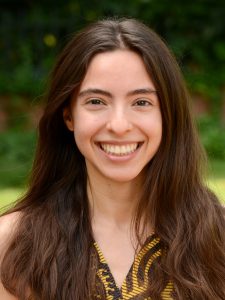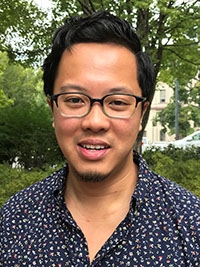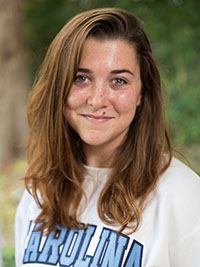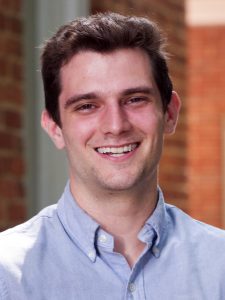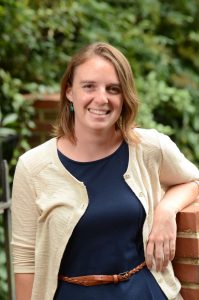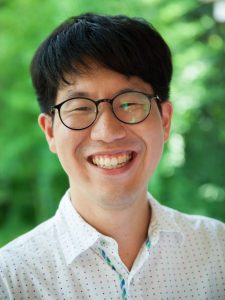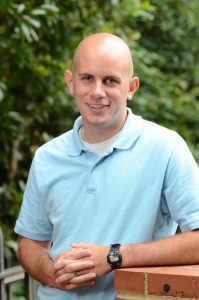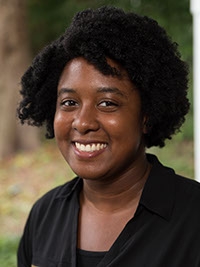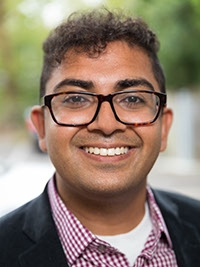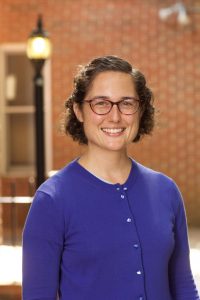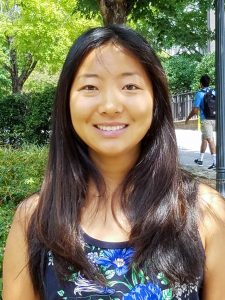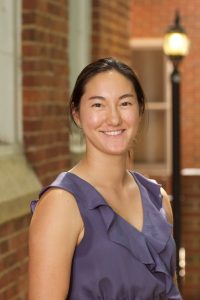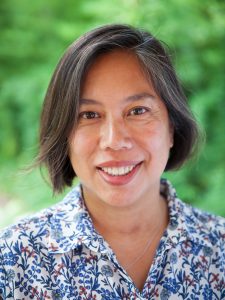UNC Participants
Casey Berger
cberger3@live.unc.edu
Casey’s research interests are in computational physics. She got her bachelor’s degree in physics from the Ohio State University. Before she was a scientist she worked in talent management in Hollywood and got previous bachelor’s degrees in philosophy and film production from Boston University. She is passionate about science communication and outreach and improving the status of women and other underrepresented groups in STEM.
Lis Bernhardt
lis0411@live.unc.edu
Elisabeth’s research interests incorporate her past experience with alternative therapies as mood disorder interventions and her present awareness of the shortage in safe and effective treatment options for women with peri-natal and postpartum depression. After graduating from Mount Holyoke College with a Bachelor Degree in Neuroscience, she worked in a research lab at Columbia University, studying various brain stimulation modalities and mood disorders.
Elisabeth discovered her passion in clinical care and pursued a Bachelor of Science in Nursing at Duke University, where she worked as a Neuroscience Nurse for the past three years. Professionally, she hopes to refine and expand upon therapeutic treatment options relating to family mental health.
Matt Clayton
mgc12@email.unc.edu
Matthew received his bachelor’s degree in history from Duke University as a Robertson Scholar in 2012. In the years following, Matt taught high school math in Lake Village, Arkansas as a Teach for America corps member before returning home to Austin, Texas to work as a Research Assistant for Dr. Kim Fromme in the Studies in Alcohol, Health, and Risky Behaviors Lab, as well as for Dr. Rebecca Bigler in the UT Austin Children’s Research Lab. He then returned to North Carolina to work under Dr. Mitch Prinstein in the Peer Relations Lab in the Department of Psychology & Neuroscience.
Currently, Matt’s research aims to illuminate how biological vulnerabilities, negative cognition, and interpersonal stressors interact to influence the development of depression and suicidality in adolescence and into adulthood.
Carlee Forbes
csforbes@live.unc.edu
Carlee Forbes is a doctoral student in Art History. Her dissertation focuses on early 20th-century art from the Belgian Congo (present-day DRC). Forbes’s research includes three types of objects: raffia mats, engraved calabashes, and watercolors. She analyzes artistic changes to further examine the relationship between the Belgian patrons, the Congolese artists, and their audiences.
Carlee was part of the team to organize the exhibition and publication of Kongo across the Waters, featuring pieces from the Royal Museum of Central Africa in Tervuren, Belgium, and U.S. collections. (University Press of Florida 2013). She co-edited (with Robin Poynor and Susan Cooksey) a special issue of African Studies Quarterly with the papers from the conference. This journal, with an introduction by Cooksey, Forbes, and Poynor was published in summer 2015.
Carlee received her bachelor’s degrees in history and arts and humanities from Michigan State University and her master’s degree in art history from the University of Florida.
Katherine Henry
kathenry@live.unc.edu
Katharine Henry is an English Ph.D. student and Caroline H. and Thomas S. Royster Fellow. She earned bachelor’s degrees in English and Political Science at the University of California Berkeley and her master’s degree in English at California State University Los Angeles. Following graduation she was the summer research fellow at the University of Louisiana at Lafayette’s Ernest J. Gaines Center whose rich archives were the source for study into the gothic elements of Gaines’s fiction.
At UNC-Chapel Hill Katharine enjoys probing the ways gender sexuality race disability and animality craft bodies into cultural spectacles. With an appetite for bringing literary and visual texts in conversation, Katharine has found a fertile home at Chapel Hill a champion of interdisciplinarity and collaboration.
Steven Houang
shouang@live.unc.edu
Steven’s research interests are in technology-based interventions that help facilitate HIV care and prevention behaviors. He was a part of the Research and Evaluation department at Public Health Solutions for over three years, where he worked on a range of studies addressing sexual and reproductive health, as well as immigrant healthcare access. He received a BA from The New School in Interdisciplinary Science with a focus in molecular biology and community health, and also completed SEA Semester, sailing onboard a brigantine tall ship while studying marine bacteria.
Emily Hynes
emihynes@live.unc.edu
Emily has an interest in researching ideas of identity, memory, and legacies as they relate to musicology. She has conducted research on 1920’s Paris and the Ballets Russes, Music in the Gulag, the American Broadway stage from 1960-present and the American southern folk music collecting of John and Alan Lomax and Dorothy Scarborough. Additionally, she relates her research to digital humanities work through incorporating her data into interactive online maps that are open to the public.
Josh Jackson
joshcj@live.unc.edu
Joshua received his bachelor’s degree with first class honors from McGill University in 2013 and worked in research positions at the University of Otago in New Zealand and University of Maryland before joining the University of North Carolina at Chapel Hill. He selected UNC-Chapel Hill for his graduate studies because of the university’s excellent psychology program, and the past research of his advisor, Dr. Kurt Gray. Joshua studies the emergence of social groups and the evolution of human culture, with a particular focus on religion and morality.
Cory Keeler
cykeeler@live.unc.edu
Cory Keeler is interested in spatial analysis of infectious disease incidence, prevalence, and transmission using GIS (geographic information system), remote sensing and geostatistical methods. With a varied background in land use/land cover change science, gender studies and public health, she attempts to use geography to tie together coupled social and ecological systems to better understand the ways that feedback cycles between nature and society have implication for disease risk for certain people in certain places.
Ben Lee
leebdw@email.unc.edu
Ben Lee is from Christchurch, New Zealand and of Korean origin. He holds a Bachelor’s degree with first class honors in Development Studies (alongside majors in Economics and French) from the Australian National University and a Master’s degree in Anthropology from Macquarie University. Ben is interested in studying the relationship between psychosis and cultural and linguistic variation, as well as identifying said relationship’s clinical implications.
Before arriving in the U.S., Ben worked at a not-for-profit organization in Sydney, Australia that focused on social security and welfare issues for older adults and completed his Master’s fieldwork at a community mental health center in Bangalore, India. He is the 2018-19 Director for Stigma Free Carolina, a Royster-led initiative dedicated to addressing mental illness stigma issues among UNC students. In his spare time, Ben enjoys reading non-English books (in French, Korean, and basic Hindi).
Nick Levis
levisna@live.unc.edu
Levis, originally from Ohio, received his bachelor’s degree from Miami University; The Journal of Experimental Biology published his undergraduate honors thesis, recognizing him as the lead author. He received his master’s degree from Western Kentucky University, where he was presented the John D. Minton Award for outstanding graduate student.
Kierra Peak
knpeak@live.unc.edu
Kierra, a native of Fayetteville, will be returning to UNC and will soon be looking for positions in the area where she can further her skills as an occupational therapist. Her interests include making the field of OT a better reflection of the people that they serve. She was a part of AOTA’s Future Scientists of OT and hopes to further pursue her interest in research while also implementing her anthropological background.
Abhik Pramanik
abhikkp@live.unc.edu
Abhik Kumar Pramanik is a Doctoral Student in the Department of Public Policy with a particular interest in studying the economic impact of international government interventions in developing countries. Abhik graduated from the University of California, Berkeley with a degree in Political Economy in 2015. After graduating, Abhik spent a year in South Korea on a Fulbright Grant. Before joining UNC-CH, Abhik worked in foreign policy advocacy in Washington D.C., with a particular focus on protecting America’s development and diplomacy programs.
Kate Saylor
kwsaylor@live.unc.edu
Kate is a doctoral student in the public policy PhD program and a UNC Center for Genomics and Society trainee. “In addition to being a powerhouse in some of my research interests, UNC has a strong interdisciplinary and collaborative atmosphere. Because my plan is to work at the intersection of science, policy, bioethics, and law, having supportive faculty and existing ties between programs drove my decision to come to UNC.” She says her Royster Society fellowship was also a “big contributor” in her decision: “What I am most excited about is the chance to get to know fellows from across departments at UNC. I really enjoy thinking about how different fields interact.”
Prior to starting her doctoral studies, Kate worked as a science policy analyst at the National Institutes of Health, where she focused on genomics research policy and bioethics. Kate received her bachelor’s degree in biology, with an emphasis on neurobiology and minors in music and psychology, from Macalester College. She received her master’s degree in neuroscience from Oregon Health and Sciences University.
Jamshaid Shahir
jashahir@live.unc.edu
Jamshaid received his bachelor’s degrees in math and statistics from the University of Maryland, Baltimore County (UMBC), where he was a Meyerhoff Scholar, a MARC U*STAR Scholar scholarship programs dedicated to increasing the number of underrepresented minorities who go on to earn doctoral degrees in STEM. During his time at UMBC, he has engaged in numerous research experiences, from UMBC, where he worked on stochastic simulation algorithms of cell polarization, to RIT, where he modeled the development of cardiac arrhythmias at the subcellular levels.
Jamshaid’s time at RIT, in particular, solidified his resolve to earn a PhD and pursue biomedical research from a quantitative perspective. He owes his continued interest in STEM to his research mentors, who have helped to build his independence and creativity as an aspiring researcher, and the Meyerhoff and MARC programs, which provided a community of like-minded individuals with similar backgrounds and the resources to engage in research and share his findings across the country, from Harvard to Hawaii.
Kathie Sun
kys6@email.unc.edu
Kathie received her bachelor’s degree in biology and environmental science from Duke University and her master of science in public health (environmental science and engineering) from UNC-Chapel Hill. After graduating from Duke, Kathie worked in the programmatic office of the National Human Genome Research Institute of the National Institutes of Health. She had the opportunity to work with program officers and grant administrators who were also her mentors. “I was able to meet renowned investigators who conduct science ‘on the ground’ and institute leaders who drive the institutional goals and set research priorities for genomic sciences as a whole.” She says the experience had a profound influence on her decision to pursue a doctoral degree related to genetics so she may help improve human health through scientific research.
Caitlin Williams
williacr@live.unc.edu
Caitlin received her bachelor’s degree in global studies from UNC-Chapel Hill, where she was a Robertson Scholar. Caitlin says that working on a Duke Center for Civic Engagement grant while an undergraduate made her realize how much she loved conducting research, particularly research that serves the needs of underserved communities. “I saw how something that initially seemed abstract – GIS mapping of public recreation facilities, low-income communities of color and trends in city funding, overlaid with a contextual understanding of racial and class disparities in rates of chronic conditions – could be used to advocate for investing in public recreation facilities in low-income communities.” Today, Caitlin’s research interests center on implementation strategies for scaling and sustaining evidence-based practices to improve pregnancy and birth outcomes, particularly for underserved and marginalized communities.
Prior to beginning her studies, Caitlin worked at Rabin Martin, a global health consulting firm, where she supported program implementation, operations, communications and advocacy for Merck for Mothers, a 10-year, $500-million initiative to reduce maternal mortality. She also managed communications efforts for Saving Mothers, Giving Life, a public-private partnership to dramatically reduce maternal and perinatal mortality in sub-Saharan Africa. She currently serves as a member of the National Preconception Health and Health Care Initiative Public Health and Consumer Workgroups, and as an advisory committee member to the National Maternal and Child Health Workforce Development Center.
Jennifer Wu
jenwu@live.unc.edu
Jennifer Wu is a PhD student in art history at the University of North Carolina – Chapel Hill. Her research interests include portraiture, word-image relationships, and epistolary culture in early modern Europe. Jennifer completed her MA in art history at American University in Washington, D.C. Her thesis, “Reinventing Donor Family Portraiture: Hans Holbein the Younger’s Darmstadt Madonna,” examines the shifting concepts of devotional practices, marriage, and parental authority in early sixteenth-century Basel. This year, Jennifer is serving as a Kress intern for K-12 initiatives at the Ackland Art Museum. Prior to her studies in art history, Jennifer was a mathematics teacher in secondary education and also had an extensive business career in marketing and sales.


